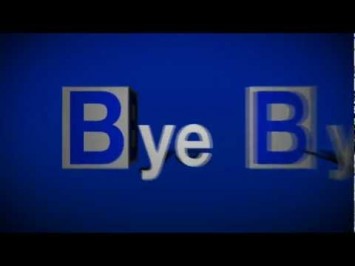

Grover Norquist’s anti-tax organization, Americans for Tax Reform, released an ad attacking John Barrow (D-GA). The group, which pushes Norquist’s rigid “Taxpayer Protection Pledge,” cites Barrow’s votes for the banking and automotive bailouts as reasons against Barrow’s re-election. However, the ad never mentions the economic context that made both bailouts necessary, or that the bailouts worked. The automaker bailout, for example, saved over a million American jobs in 2009-2010 and one of America’s largest industries.
The Auto Bailout Worked
Auto Bailout Saved 1.4 Million American Jobs In 2009-2010. From the Wall Street Journal: “The Center for Automotive Research said today the government’s bailouts of the U.S. auto industry spared more than 1.14 million jobs last year alone, and prevented ‘additional personal income losses’ of nearly $97 billion combined for this year and last. Another 314,400 jobs were saved this year thanks to the $80 billion in taxpayer lifelines extended to GM, Chrysler, and the GMAC and Chrysler Financial financing businesses, CAR said. The research organization based its conclusions on the potential impact of auto-industry collapse for jobs at U.S. auto makers and suppliers, and cascading effects on the economy at large.” [Wall Street Journal, 11/17/10]
GM Has Returned To Being The Global Leader In Car Sales. From CNNMoney: “General Motors is once again No. 1 in global auto sales, after three years out of the top spot. It’s a comeback that became official Thursday when it reported final 2011 sales figures of 9 million vehicles, its best sales total since 2007.” [CNNMoney, 1/19/12]
Bipartisan Bank Bailout Helped Avert Possible Depression
Rescue Efforts Helped Avert “Great Depression 2.0.” From Bloomberg: “The U.S. response to the financial crisis probably prevented a depression, slowed a decline in gross domestic product and saved about 8.5 million jobs, economists Alan Blinder and Mark Zandi said. Policies including the government fiscal stimulus, bailouts of financial companies, bank stress tests and the Federal Reserve’s purchase of mortgage-backed securities to lower interest rates ‘probably averted what could have been called Great Depression 2.0,’ Blinder and Zandi said in a report dated yesterday. Without those measures, the U.S. would have deflation, they said.” [Bloomberg, 7/28/10]
On National Television, “President Bush Strongly Urged Lawmakers To Pass His Administration’s $700 Billion Bailout For The Financial Markets” In 2008. As reported by MarketWatch: “President Bush strongly urged lawmakers to pass his administration’s $700 billion bailout for the financial markets on Wednesday, spelling out dire risks to the U.S. economy if Congress doesn’t act quickly. ‘We’re in the midst of a serious financial crisis,’ Bush said in a nationally televised address. ‘Our entire economy is in danger,’ as a result of the credit crunch, he said, and inaction on the plan could result in a ‘long and painful recession.’” [MarketWatch.com, 9/24/08]
- Congress Passed The Bailout With Significant Bipartisan Support. According to the New York Times: “The Senate approved the bailout measure on Oct. 1, 2008, on a bipartisan vote of 74 to 25. The House initially rejected the proposal, but under prodding from the White House and leading members of both parties, House members ultimately voted 263 to 171 for the bill, with 91 Republicans joining 172 Democrats in backing it; 108 Republicans and 63 Democrats voted no.” [New York Times, 7/11/10]
Bailouts Have Not “Added Significantly To The Debt.” An analysis by FactCheck.org concludes “it’s not the case at all” that the bailouts “added significantly to the debt.” According to the Congressional Budget Office: “CBO estimates that the net cost to the federal government of the TARP’s transactions, including the cost of grants for mortgage programs that have not been made yet, will amount to $32 billion. CBO’s analysis reflects transactions completed, outstanding, and anticipated as of February 22, 2012. That cost stems largely from assistance to American International Group (AIG), aid to the automotive industry, and grant programs aimed at avoiding home foreclosures: CBO estimates a cost of $56 billion for providing those three types of assistance. But not all of the TARP’s transactions will end up costing the government money. The program’s other transactions with financial institutions will, taken together, yield a net gain to the federal government of about $25 billion, in CBO’s estimation.” [FactCheck.org, 6/15/12; Congressional Budget Office, 3/28/12]
[NARRATOR:] B. B is for Barrow. B is for bailout. B is for bill. John Barrow voted to bailout big automakers and gave taxpayers the $14 billion bill. Barrow voted to bailout big mortgage buyers and gave taxpayers a bill for billions. But B is also for bye-bye. On November 6th, say ‘bye-bye’ to John Barrow, Barrow’s bailouts, and Barrow’s bills. Americans for Tax Reform is responsible for the content of this advertising. [Americans for Tax Reform via YouTube, 10/24/12]


